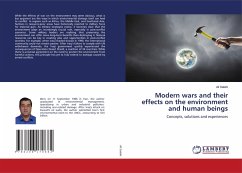While the effects of war on the environment may seem obvious, what is less apparent are the ways in which environmental damage itself can lead to conflict. In regions such as Africa, the Middle East, and Southeast Asia, factions in resource-poor areas have historically resorted to military force for material gain. As military strategies evolve, it becomes clear that the environment plays an increasingly crucial role, especially in post-conflict scenarios. Some military leaders are realizing that preserving the environment can offer more long-term benefits than destroying it. Natural resources can be key in creating jobs and opportunities in post-conflict societies. For example, when Iraq invaded Kuwait in 1990, the international community could not remain passive. After Iraq's failure to comply with UN withdrawal demands, the Iraqi government quickly experienced the consequences of Operation Desert Shield, a coalition of 34 countries. While there is universal agreement on the need to protect the environment from harmful actions, this principle has yet to fully extend to damage caused by armed conflicts.
Bitte wählen Sie Ihr Anliegen aus.
Rechnungen
Retourenschein anfordern
Bestellstatus
Storno








